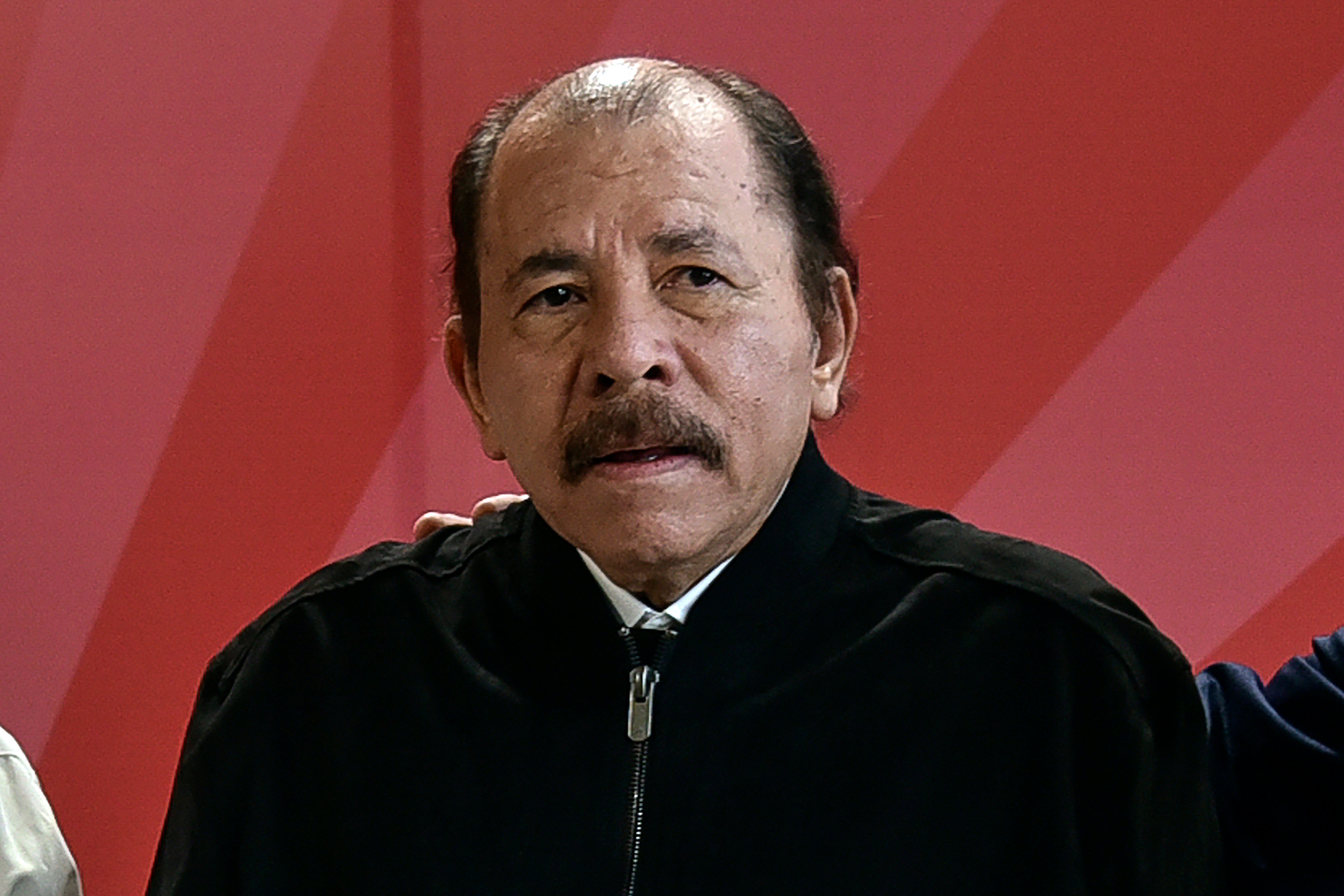Nicaraguan congress gives legal footing to practice of prosecuting exiles and seizing their property
Nicaragua’s Sandinista-controlled National Assembly has approved criminal code changes that allow the government to try opponents in absentia and seize the assets of the condemned

Your support helps us to tell the story
From reproductive rights to climate change to Big Tech, The Independent is on the ground when the story is developing. Whether it's investigating the financials of Elon Musk's pro-Trump PAC or producing our latest documentary, 'The A Word', which shines a light on the American women fighting for reproductive rights, we know how important it is to parse out the facts from the messaging.
At such a critical moment in US history, we need reporters on the ground. Your donation allows us to keep sending journalists to speak to both sides of the story.
The Independent is trusted by Americans across the entire political spectrum. And unlike many other quality news outlets, we choose not to lock Americans out of our reporting and analysis with paywalls. We believe quality journalism should be available to everyone, paid for by those who can afford it.
Your support makes all the difference.Nicaragua’s Sandinista-controlled National Assembly approved criminal code changes Tuesday that allow the government to try opponents in absentia and seize the assets of the condemned. It's a practice that's already carried out but will now have legal foundation.
The proposal from President Daniel Ortega was approved unanimously in the state party controlled legislature.
Opponents and organizations that have fled or been forced into exile in Ortega’s years-long campaign to silence critical voices could be fined, sentenced to lengthy prison terms and see their property seized by the government under the approved changes.
Nicaraguan lawyer Uriel Pineda said that with these changes Ortega’s administration is looking to “legalize the arbitrary (actions) that it has been committing, like the confiscation of property,” while at the same time “reinforcing the structure of repression, giving it a legal framework.” Pineda was exiled and stripped of his nationality last year.
Sandinista party lawmaker María Auxiliadora Martínez defended the reform, saying that “it is guaranteeing a system of coherent norms” through “new kinds of crimes that will allow the strengthening of the country’s legal system.”
Fellow party lawmaker Edwin Castro said it authorizes the seizures from Nicaraguans or foreigners “to compensate society for the crime committed.”
Last year, the government exiled more than 300 opposition figures, stripping them of their nationality. Far more Nicaraguans have fled into exile themselves to escape the repression that followed massive 2018 protests that Ortega dubbed a failed coup with international backing.
The changes also add new criminal statutes, including one that sanctions anyone who promotes, requests or facilitates economic, commercial or financial sanctions against the government.
Also on Tuesday, the U.N. High Commissioner for Human Rights Office said in a report that the government is “persecuting not only those who express dissident opinions, but also any person or organization that acts independently or is not directly under its control.”
During the report’s presentation in Geneva on Tuesday, spokesperson Thameen Al-Kheetan said the criminal code reforms “will only aggravate the situation” of thousands of exiled Nicaraguans. “If this law is adopted it will further criminalize dissidence, including in the case of those who are in exile and face great difficulties.”
The legal changes can also be applied to businesses and other organizations.
The government has shuttered more than 5,000 organizations since 2018, many of them religious in nature.